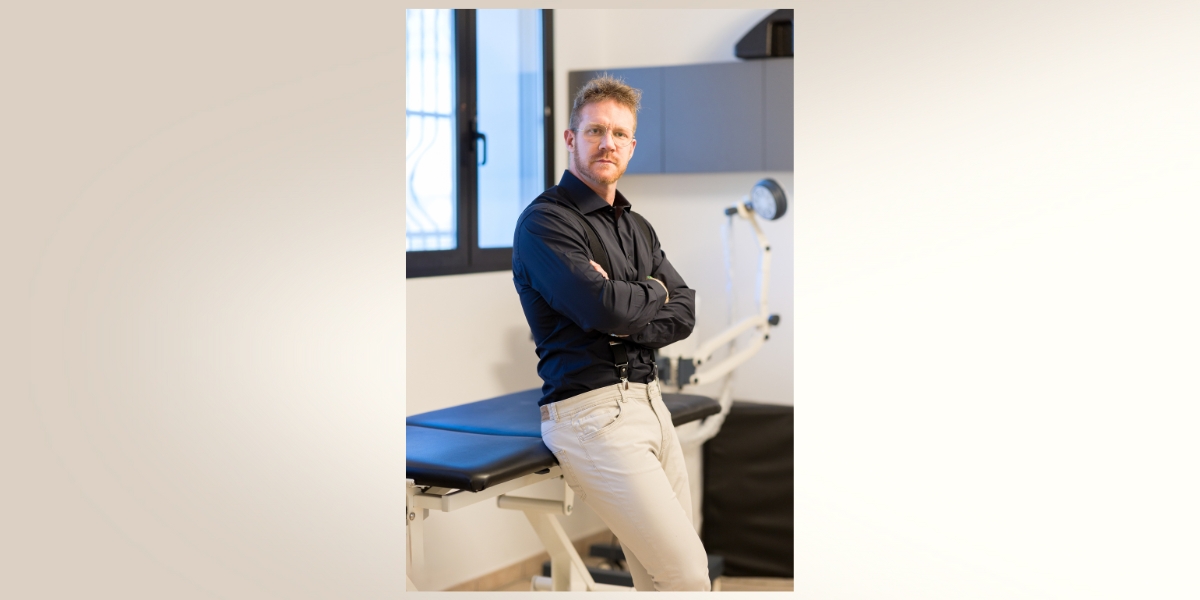Image commercially licensed from: Unsplash
Every 65 seconds, someone in the United States develops Alzheimer’s disease. Alzheimer’s is the most common form of dementia and includes a number of markers, including irreversible degeneration of the brain, significant personality changes, and eventual death. Alzheimer’s research has often uncovered surprising details about the disease’s trajectory, risk factors, and potential treatments.
Dr. Dung Trinh is one of the world’s foremost experts on dementia. He has studied the emerging information about Alzheimer’s specifically and has dedicated his work to unraveling this often mysterious disease. Throughout his career, he has developed a passion for educating patients and families and has been deeply involved in clinical trials for Alzheimer’s.
“There’s a negative stigma around the word Alzheimer’s,” Dr. Trinh says. He acknowledges the fear many have of the disease that people worldwide have experienced through friends and loved ones slowly fading away, losing connection and cognitive ability.
However, through his study, Dr. Trinh has noted several trends in modern Alzheimer’s research.
Protect your brain and minimize risk
“Alzheimer’s has the same risk factors as heart disease, and what’s good for the brain is usually good for the body,” Dr. Trinh explains. He feels engaging the brain and looking after one’s nutrition and wellness are keys to staving off Alzheimer’s disease.
One of the best ways to guard against an eventual Alzheimer’s diagnosis is to avoid risk factors such as depression and diabetes. Exercise and a healthy diet are essential for brain health at any age but become even more critical as one grows older. Alzheimer’s disease can be diagnosed as early as the early 60s age range, progressing as the patient ages. Getting enough sleep, eating a Mediterranean diet, and even practicing mindfulness are ways that researchers have found could guard against a future Alzheimer’s diagnosis.
There are also ways to engage the brain to keep it healthy. For example, learning a new skill or taking time for mental activities keep the brain active, triggering the parts of the brain that can grow stagnant if not “worked out.” According to Dr. Trinh, brain health and whole-body health should be a lifelong priority — not only for avoiding Alzheimer’s but for living the healthiest life possible.
Work beyond fear
A diagnosis of Alzheimer’s can strike fear in family and loved ones, with many feeling it signifies an immediate end. However, Alzheimer’s progresses in stages. “The mild stages of Alzheimer’s can last many years. There’s a lot one can do in that time to make a difference and minimize the risk of progression,” says Dr. Trinh.
Even at the more moderate and severe stages of the disease, there are ways of reaching patients and bringing them “back,” if even for a moment. One way of reaching patients at even advanced stages that research has uncovered is music.
“Music works a different pathway in the brain than the disease,” explains Dr. Trinh. Those with dementia can still be stimulated, even if we have to interact with them differently. “They can still engage with soul, spirit, and mind,” he adds.
Targeted treatments
While Dr. Trinh acknowledges that there does not currently exist an FDA-approved medication that cures Alzheimer’s, there have been great strides made in medicinal research for the disease in recent years. The medication lecanemab, an amyloid beta-directed antibody sold under the brand name Leqembi, received approval for medical use in January 2023. It joins the medication aducanumab, sold under the brand name Aduhelm, which is a human antibody that helps reduce the amyloid plaques that lead to Alzheimer’s disease.
While these medications are not considered a cure, they can slow the decline in Alzheimer’s patients, giving them more time without the advanced ravages of the disease. “The data with Lecanemab is much stronger than Aducanumab,” Dr. Trinh says. “These could be the first disease-modifying medications for Alzheimer’s. They are not a cure, but they do buy us some time.”
There are approved medications that manage the symptoms of those with moderate to severe Alzheimer’s. Still, most researchers hope that further studies will soon uncover medicines that can halt the progression of the disease and, someday, offer a be-all and end-all cure.
Early detection and the genetic connection
Researchers have uncovered that having a genetic variant of the apolipoprotein E (APOE) gene on chromosome 19 does increase a person’s risk of developing Alzheimer’s. “One out of every four Americans have this gene,” explains Dr. Trinh, “but it does not guarantee you’ll get Alzheimer’s. Lifestyle plays a bigger role.”
Researchers are hopeful that they will be able to target the emergence of Alzheimer’s earlier. Most experts agree that specific biomarkers are the key to early diagnosis, several of which are currently being targeted for their ability to indicate the early signs of Alzheimer’s. These biomarkers include beta-amyloid and tau levels in blood plasma and certain brain changes that can appear on imaging. Neuroimaging is currently being used to detect Alzheimer’s earlier and earlier. Community memory screening is an important part of early detection.
Due to the lack of specialists and medical providers needed for the mass adoption of community memory screening, Dr. Trinh is a promoter of Cognivue, a computerized memory test that can be completed within 5-10 minutes. In his Healthy Brain network, he has established 9 locations throughout the local community that offers memory testing on a routine basis.
The future of Alzheimer’s treatment and optimizing brain health is not a “one size fits all” pill. Because there are multiple factors that can lead to Alzheimer’s disease, treating this condition requires a precision medicine approach. Different patients have different risk factors for Alzheimer’s dementia, and their prevention treatment plan needs to be tailored to reduce their specific risk factors.
A diagnosis of Alzheimer’s can devastate a family and can come with a host of questions and concerns for the future. Dr. Trinh has dedicated his practice to educating patients on how to avoid developing the disease in the first place and how early detection and a healthy lifestyle can be key to brain health. He applies a holistic lifestyle approach combined with leading-edge clinical research to achieve this goal.
Sponsored Post






